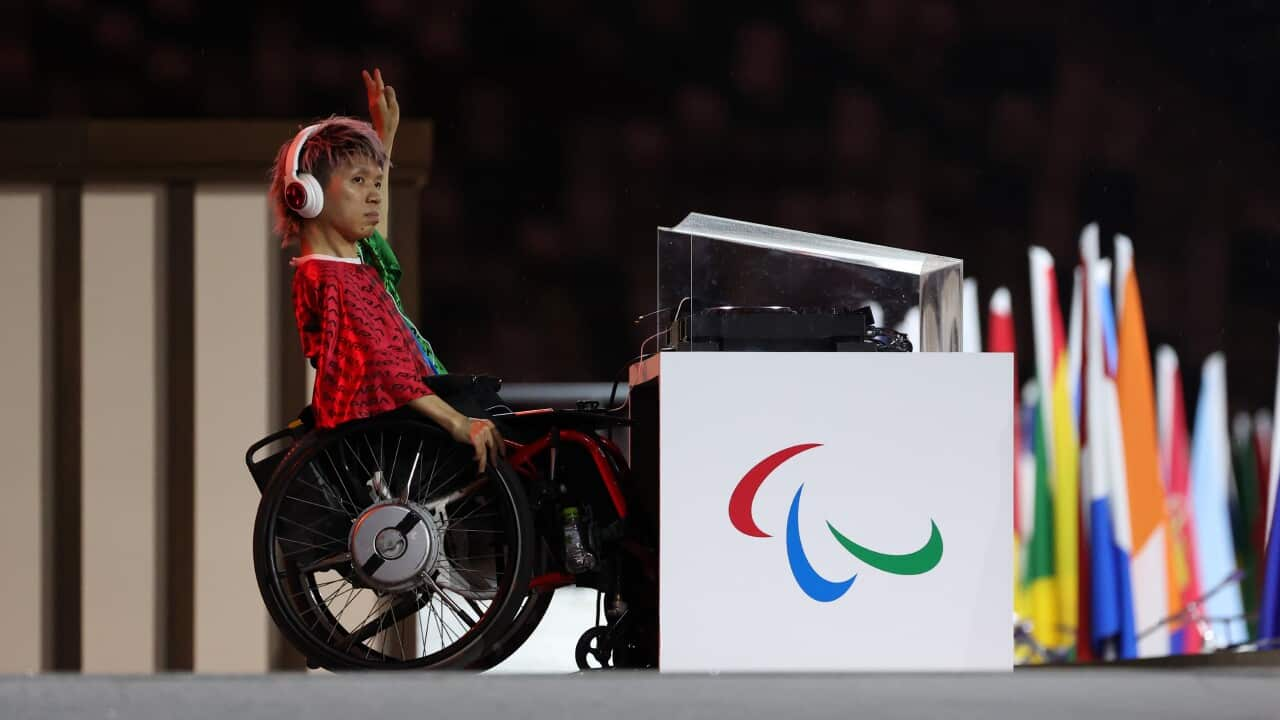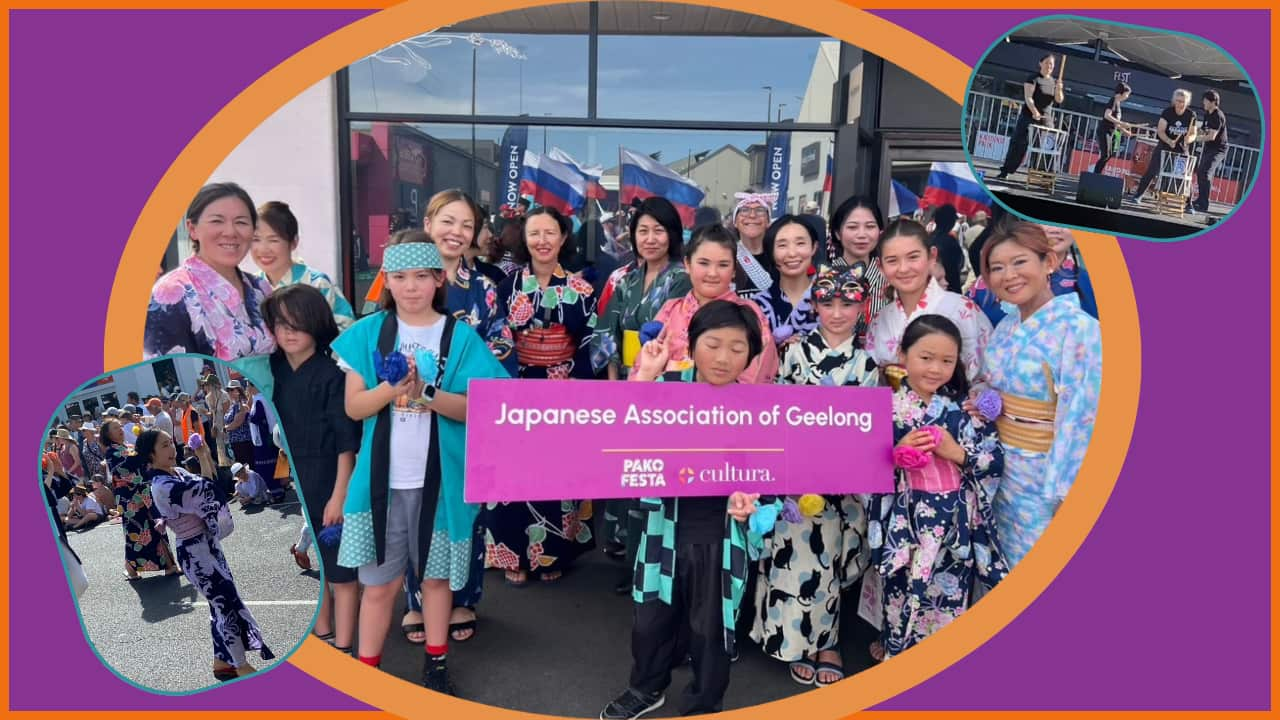Keita Tokunaga was the DJ behind the decks at the Tokyo Paralympics opening ceremony last week. Although the camera captured him briefly and without any formal introduction, the internet in Japan went into a frenzy over him, trying to identify “the DJ on wheelchair”.
“When the organisers of the ceremony asked for my profile, I declined. I believed that moment was for the athletes, not me,” Keita told SBS Japanese.
However, Keita’s performance certainly did not go unnoticed.
“I couldn’t believe how many people were searching for my name on the internet after,” he added.
I am still a little overwhelmed

Born with cerebral palsy, Keita has been using the wheelchair for much of his life. However, that has not stopped the 34-year-old from exploring and pursuing interests and opportunities.
Keita began DJ’ing several years ago, after meeting Kenta Kanbara, a wheelchair dancer who also performed at the opening ceremony.
“I wanted to do something with him, and making music was something I could do,” he said.
Soon, Keita was given an opportunity to DJ at a gig organized by Ubdobe, an organisation dedicated to promoting active social participation of people with special needs, through music and art.
Keita is more than just a DJ. He is also a fashion journalist, a model and an activist who spreads awareness about people with cerebral palsy and people on wheelchairs.
He took to Instagram a few years ago, and his account, Wheelchair_fashion, helps him provide a platform where people can tag themselves, and comfortably say, “this is my fashion”.
I use the wheelchair like fashion
Keita was drawn into the world of fashion during his 20s, when he realised that Japanese fashion was “strange” compared with the rest of the world.
“But that strangeness is fine, as long as you are happy. The realisation of this relationship in fashion both shocked me and made me feel comfortable.

“With my disability, there are many things that I cannot do. But fashion has no rule, and can be anything, outside the box. It's one of the freedoms I discovered,” he said.
I am not doing what I’m doing to become famous. I am doing this, so that people can see that there are people like us
Keita says he was always interested in fashion and began reading fashion magazines when he was quite young.
“But that information was never for me. There was no one on wheelchairs, and I couldn't take anything for an example.
“If I can be like a stepping stone for them to go to the next level,” Keita said.
I hope people [with special needs] can realise what they are capable of by seeing what I do
“I hope that one day, I can be an important figure in the fashion industry,” he added.

Diversity and inclusion at Tokyo Games
Keita recalled that when the Japanese society began talking about “diversity” after they won the bid to host the Tokyo Olympics and Paralympics, he felt “uncomfortable”.
To me, diversity was a normal thing
In order to reconfirm and understand diversity, Keita began interviewing and writing about people with special needs and varying values.
“I became concerned. The society may be working towards diversity and inclusion, but would it be a one-time thing,” Keita wondered.
But that strong feeling has been “weakened” due to the pandemic that the world is currently facing today, says Keita.
“With so much to worry about, I don't think it is a time to get involved in other people’s affairs.
“I will wait for the pandemic to be over, for the economy and interaction with people to resume and the world to regain its vitality, to make a difference,” he concludes.
[audiotrack uuid=“f795eabc-4ed5-497f-8d59-e719dd503383” name=“東京パラ開会式DJ、ファッション・ジャーナリスト 徳永啓太さん ”]
Listen to SBS Japanese Radio on Tue, Thu and Sat from 10pm
You can listen to our past stories from our podcast
And don't forget to visit SBS Japanese Facebook page!




